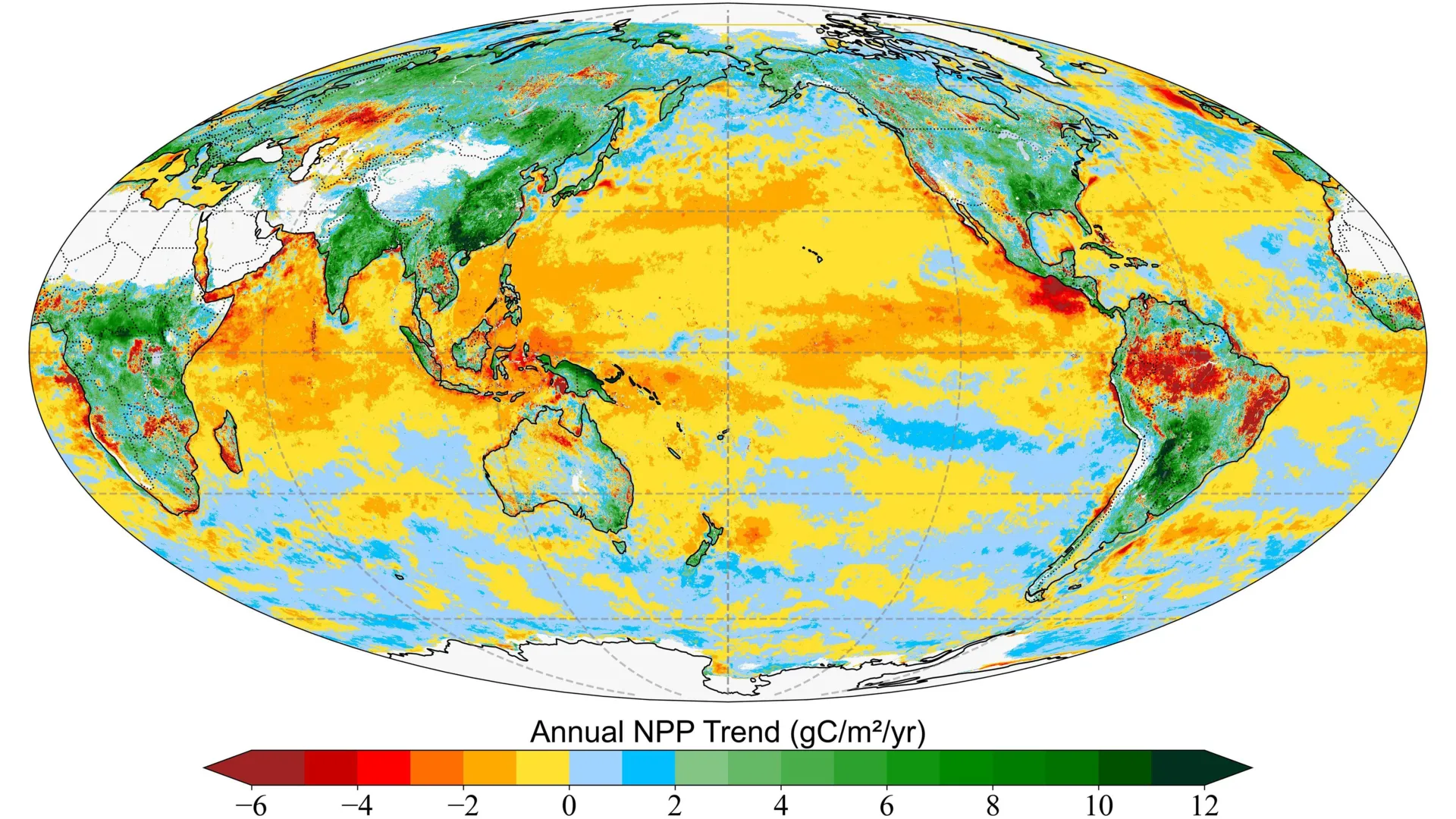Now Reading: Forests vs Oceans: The Unsung Climate Struggle
-
01
Forests vs Oceans: The Unsung Climate Struggle
Forests vs Oceans: The Unsung Climate Struggle

Rapid Summary:
- A study published in Nature Climate Change found global photosynthesis increased between 2003 and 2021,driven by terrestrial plants but partially offset by a decline among marine algae.
- Terrestrial net primary production rose by 0.2 billion metric tons of carbon annually due to warming temperatures and extended growing seasons in higher latitudes, as well as localized wetting, forest expansion, and intensified cropland use in temperate regions.
- Marine net primary production declined overall at a rate of 0.1 billion metric tons of carbon per year, especially in tropical/subtropical Pacific regions due to rising sea surface temperatures limiting nutrient mixing essential for phytoplankton survival.
- Global net primary production saw an overall increase of 0.1 billion metric tons per year during the studied period.
- Ocean systems showed greater sensitivity to climate variability events like El Niño and La Niña compared to land ecosystems. Recent La Niña events influenced ocean productivity trends post-2015.
- Declines in ocean productivity can affect biodiversity, fisheries, local economies, and the ability of tropical areas to act as carbon sinks-potentially intensifying climate warming impacts.
Indian Opinion Analysis:
India should carefully consider findings from this study when designing its environmental policies since both terrestrial health and marine ecosystems are crucial for maintaining global ecological balance. The study highlights how terrestrial productivity has somewhat compensated for marine losses; however, India’s tropical geography means it could be disproportionately affected if declines persist in key regions such as the tropics.
For India’s agricultural sector-which relies heavily on favorable climatic conditions-the reported shifts toward longer growing seasons linked with warming at higher latitudes may have mixed implications depending on regional changes like erratic precipitation patterns or other extreme weather phenomena connected to El Niño or La Niña events.
Marine declines also threaten fisheries vital to India’s economy; understanding how warmer oceans inhibit phytoplankton growth is critical for shaping adaptive measures that ensure fish stock viability long-term. If Indian policymakers continue investing resources into coordinated Earth monitoring systems while considering both land-based agriculture strategy enhancement alongside coastal ecosystem protections-it can secure national stability amid broader planetary shifts.Key insights reinforce that interdependence exists between ecological domains but highlight vulnerabilities ahead tied directly into anthropogenic impacts raised globally-prompting India towards spearheading collective global sustainability discourse further rigorously aligning with evolving science-backed concerns/evidence frameworks over time.


























